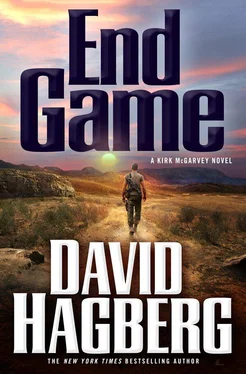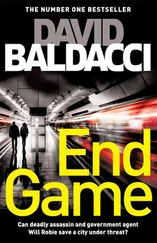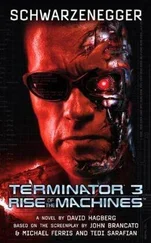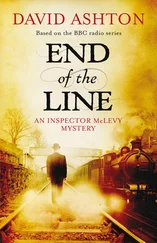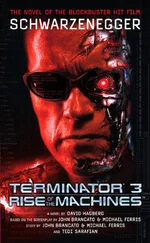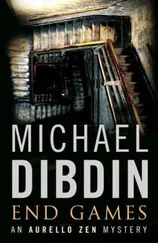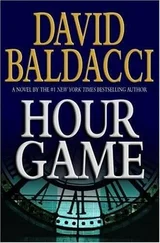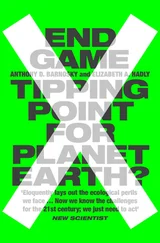But whoever the killer was had a very good source of intelligence inside the CIA. Not only good enough to pinpoint Wager, Fabry, Knight, and Schermerhorn, and Alex, but to get on and off campus without raising any alarms.
He and Otto had suspected it might be someone working for Blankenship — or possibly even the director of security himself. But Blankenship had been in his office when Schermerhorn was murdered, and had been driving through the main gate when Knight had been attacked. Nor had he been absent from his desk when Coffin had been shot and killed on the boat in Piraeus.
Alex’s alibis weren’t as tight — she was on a long weekend when Coffin was shot, and as an NOC in Iraq she had been an excellent marksman with the Barrett sniper rifle — and she was definitely off campus when Schermerhorn had been murdered.
But if she thought the killer was George, and that he was somewhere here in Paris, and if he was indeed the killer, she was playing with fire, because it was possible he knew she had come to Paris.
Two-thirds of the way to the Arc de Triomphe, he spotted her sitting at a sidewalk table at the Café George V. The waiter had just set two coffees down and was walking away.
She was obviously expecting someone. McGarvey waited for a couple of minutes, watching her, waiting for whoever it was to show up, but when no one came, he walked over.
“Your coffee is getting cold,” she said, looking up.
“I thought you might be waiting for George,” McGarvey said, sitting across from her.
She smiled. “He’s the last person I wanted to see. Tell me about Roy. Do you think he’ll survive the night?”
“That why you ran?”
She looked at something across the broad avenue. “That’s obvious, isn’t it?”
“Then why the little display in the Tuileries?”
“Just kids out to have a little fun.”
“They’ll think twice before they attack another woman.”
She smiled again. “That’s the whole point, Mr. McGarvey. I can take care of myself, and I mean to do so.”
“I found you.”
“I let you find me. But unless you or Pete or Otto have told anyone about my movements, I figure I’ll be reasonably safe here for a few days or so.”
“Then where?”
“That’ll be up to you, won’t it?” she said. “If you find George, I’m home free. Relatively speaking.”
“Otto’s decrypted the fourth panel.”
“What’d it say?”
“‘Let there be light.’”
Alex laughed, the sound low from the back of her throat. “Sounds like Roy. Anything else?”
“And there was peace.”
She nodded wistfully. “Then you know what’s still buried over there.”
“Schermerhorn’s dead.”
For a long moment Alex didn’t react, but then her face fell by degrees, and she looked down. “I thought by leaving it would draw him away. I thought he’d come after me, just like I knew you would. And if my luck held, the two of you would come face-to-face.”
She’d laid a copy of The International New York Times on the table, and a chance breeze ruffled it. She suddenly moved to the left to reach for it, when a rifle shot struck a nearby male patron in the chest, and he was slammed violently backward. He had been seated at the table just behind them.
McGarvey rolled to the right and dropped to the sidewalk, searching the roof line across the broad boulevard in time to see a figure in a second-floor window disappear.
A woman passing by screamed, and people in the café began to react, some of them scrambling out of their seats, trying to escape what to them had to look like the start of another terrorist attack.
When he looked over his shoulder, Alex was gone.
Alex raced through the restaurant, into the busy kitchen, and out the back door and onto a narrow lane across from the rear of the U.S. Embassy, which fronted on the Avenue Gabriel. She turned left and, walking fast, made it to the Rue de Miromesnil before she looked over her shoulder to see if McGarvey was behind her. He wasn’t.
The shot had been fired from a high-power rifle, which to her had sounded like a Barrett, and it was only by happenstance that she’d suddenly moved to keep her newspaper from blowing away. But she’d been in time to glance up and get a quick glimpse of the shooter, who’d been in the second-floor window of the building across the avenue.
It had been a man, she was certain of it. But she got the impression he was tall and very ruggedly built — the opposite from George. And that only made sense if George wasn’t the one doing the killings — or if he wasn’t working alone.
At the corner, she turned around and walked back to the Champs-Élysées, half a block up from the George V. A crowd had gathered in front of the café, and two police cars had already arrived. A cop was in the middle of the street, directing traffic, as an ambulance, its siren blaring, came around the corner two blocks away.
If McGarvey was somewhere down there, he was lost in the crowd.
She headed up the avenue toward the Arc de Triomphe, and in the next block she entered the VIP World Travel Agency, housed in a small storefront.
A young woman seated behind the desk looked up and smiled. “Bonjour, Madame,” she said pleasantly.
“Good morning,” Alex said in English, and the young woman switched languages.
Alex put her real passport on the desk. “I would like to make a trip to Tel Aviv, but first I need to get a message to your director.”
The agent glanced at the passport but did not reach for it.
George had told them all that if ever they got in over their heads over the business in Iraq, they were to get word to him through the travel agency either in Washington, London, Berlin, or here, in Paris. The procedure was to lay their real passport — no matter what other name they might be using — on the agent’s desk, and ask to get a message to the agency’s director before making a trip to Tel Aviv.
The company had been set up by the Israeli Mossad in the late fifties as an elaborate front so that its agents could travel to Argentina to capture Adolf Eichmann and bring him back to Israel. The thinking was that if they used their own travel section, the operation might not be discovered and Eichmann would not disappear again.
The company had remained in existence all this time because it was successful as an ordinary travel agency, and it was even expanded to Berlin, London, and Washington from its original office here in Paris. It wasn’t a very closely guarded secret — at least not from the CIA — that the occasional Mossad operator still used the company.
“Do you have the name of our current director?” the woman asked.
“It’s been some years.”
“What name do you know?”
“George.”
The agent took Alex’s passport to a machine in one corner, made a copy of the bearer’s pages, and brought it back.
“And when would you like to travel to Tel Aviv?”
“As soon as George responds to my query.”
“Are you staying in the city?”
“Yes, but I’ll call you at noon,” Alex said.
“What is the message?”
“‘I’m the last. Shall I come?’”
“Very well. It will go out within the hour. But I cannot guarantee there will be a response, or if there is one, when it will arrive.”
“Will there be a fee?”
“No, but I will take an impression of your credit card to make the travel arrangements,” the agent said.
Alex handed her the Lois Wheeler credit card. The agent made a copy of it, but she said nothing that the name was different from the passport.
“I won’t wait long,” Alex said.
“I understand,” the agent said.
* * *
Alex caught a cab a half block away and ordered the driver to take her back to the InterContinental.
Читать дальше
